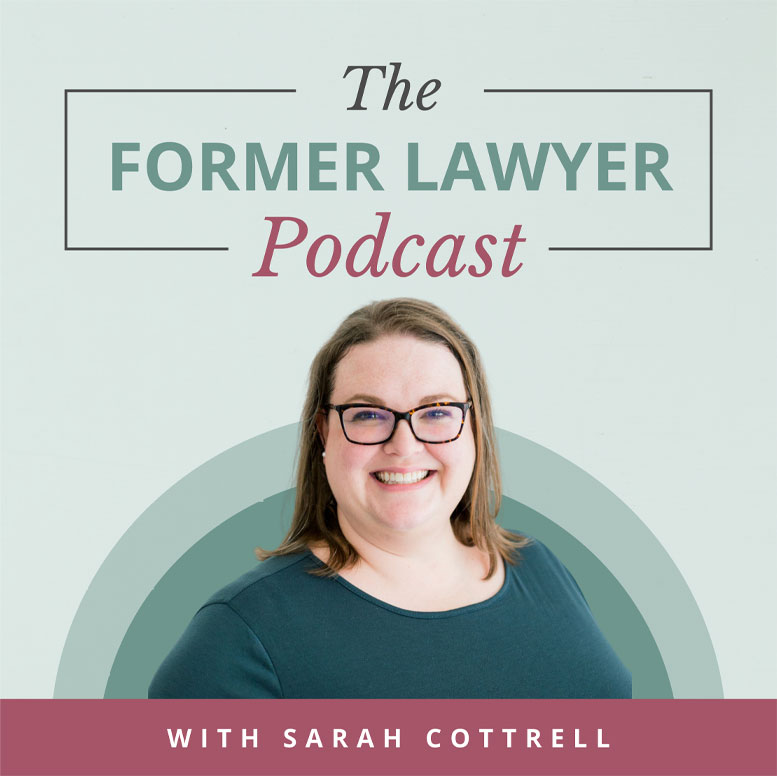21 Sep
Quitting Without Another Job Lined Up: Terrible Idea For A Lawyer?
Are you wondering whether quitting without another job lined up is a terrible idea?
If you’re dangerously close to rage-quitting, or just completely over your exhausting, ridiculous job as a lawyer, then read on for my answer to the age-old question: is quitting without another job lined up a terrible idea?
(Would you rather watch than read? Click play on the video below.)
The truth about whether quitting without another job lined up is a terrible idea is… it depends.
I know it’s the most lawyerly answer ever, but the truth is that if you’re asking: “Should I quit before I have another job lined up?”, the answer is, “It depends.”
I don’t recommend anyone think about making this move unless they’ve asked themselves the following questions.
The first question to ask if you’re thinking of quitting without another job lined up.
The threshold question that you need to answer if you’re thinking of quitting without another job lined up is: what is my fallback plan? What types of support do I have in place if I make this move?
I don’t say this to deter you from quitting, only to guide your decision-making.
Some questions to ask yourself to determine your level of fallback support are:
- Do you have savings?
- Do you have a partner who is working and can provide an income cushion?
- Can you move in with family or friends in order to minimize expenses if you need to?
- How will you pay your bills?
- Do you have a runway, and how long is it? (Money and time-wise.)
Being honest with yourself and the important people in your life is a great way to start figuring out whether this could be a good step for you.
When I interviewed Andrea Yang on the Former Lawyer podcast, she shared that she quit her job in biglaw and lived with her parents. She needed time and space to figure out what she really wanted to do.
Do I need to worry about having a resumé gap?
Often, the real question for lawyers thinking about quitting without another job lined up is how bad it will be to have a gap on their resumé.
If that’s you, here are some of the things that you should take into consideration.
Because I get this question a lot, I asked my LinkedIn connections who are lawyers to weigh in and give me their opinions about whether having a voluntary resumé gap is a problem. The vast majority of people answered that as long as you have a coherent explanation of the reason for the gap on the resume, then it isn’t a big deal.
The one exception to this is that having a gap can be potentially detrimental if you’re wanting to move from one Biglaw firm to another or pursue another similarly “prestigious” job. (The air quotes are intentional.) Biglaw is very focused on “prestige”, and so there is a lot of focus on whether someone has taken the “right” path. There is often the sense that anyone who veers from the path should be punished because they didn’t do what everyone else did.
The rule of thumb is that the more prestige-obsessed a particular area of practice or employer is, the more it will mater to them that there is a gap on your resumé. Otherwise, it’s much less of a concern than most lawyers think that it is.
Lawyers tend to overweight these odds because the legal profession is generally quite obsessed with prestige. But out there in the real world, having an employment gap is not the mark of shame that lawyers are led to believe. And let’s be real, if you’re here, then I’m guessing you are seriously considering bailing out of legal practice anyway!
The most important consideration when thinking about quitting without another job lined up
Ultimately, you have to do what’s best for you. Taking care of yourself should be the priority over making the “optimal” decision or having a gap in your resumé.
As someone with clinical anxiety and panic, I have absolutely made “non-optimal” career choices in the interest of my own well-being. You are more important and more valuable than any job, and you need to take care of yourself. In the end, you need to do what is best for you.
If you’re interested in exploring careers outside of the law, download a copy of First Steps to Leaving the Law, where I walk you through the first steps that you need to take if you want to ditch your soul-sucking job.



